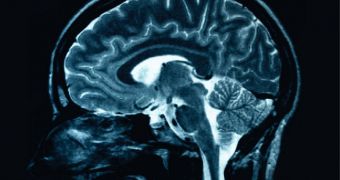A new study adds to the growing body of evidence showing that the brain is better equipped to remember distant memories when it's in a particular state. Contrary to popular belief, we do not always remember things with the same clarity and detail every moment of the day.
There are specific times when recalling things from the distant past is easier, and other when doing so is nearly impossible, the team behind the investigation says. This influence that brain state has on memory is now being studied increasingly often, as it could have numerous applications.
Experts at the University of California in Davis (UCD) came to this conclusion after they carried out a number of memory tests on volunteers. The team focused it monitoring efforts on brainwaves called theta oscillations, which can be easily measured via electrodes.
Past studies have associated these oscillations with the brain being in a state of constant monitoring. A such, it made sense that this would be the best time to try and remember something, the team adds, quoted by PsychCentral.
“It’s been assumed that the process of retrieving a memory is cued by an external stimulus. But we found that the levels of brain activity before items came up were correlated with memory,” explains UCD expert and team member Charan Ranganath, PhD.
In the memory tests, the volunteers were asked to memorize a series of words, as they were associated with particular context. Later on, when asked whether they had seen that word or not, they had to remember the context in which that word was used, too.
If the test subjects displayed high theta oscillation levels before being asked to remember the words and their context, then they would fare a lot better than others. Those with normal theta wave levels did a worse job at remembering what they had seen.
What the new study suggests is that the patterns of activity which prompt memory recollection are already unfolding inside our brains, but only at specific times. External cues only work when they are combined with relevant, memory recollection-boosting thought processes.
Now, experts plan to investigate whether humans can actively prime their brains to boost theta wave levels. If so, then this ability could lead the way to the development of new therapies and treatments against memory loss.
This could also be of use in a court of law, where many times very important things are decided based on the memories of one or two individuals. Getting them in a mental states where their memories are most accurate is therefore very important.

 14 DAY TRIAL //
14 DAY TRIAL //